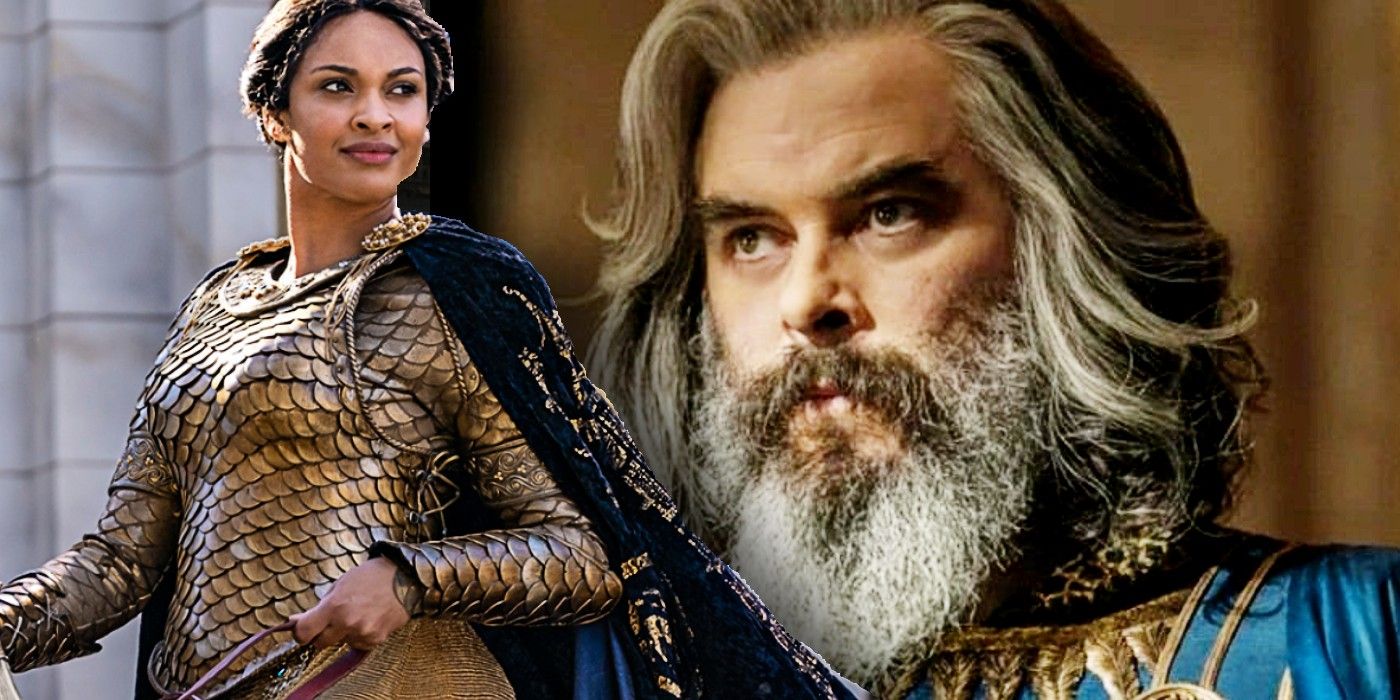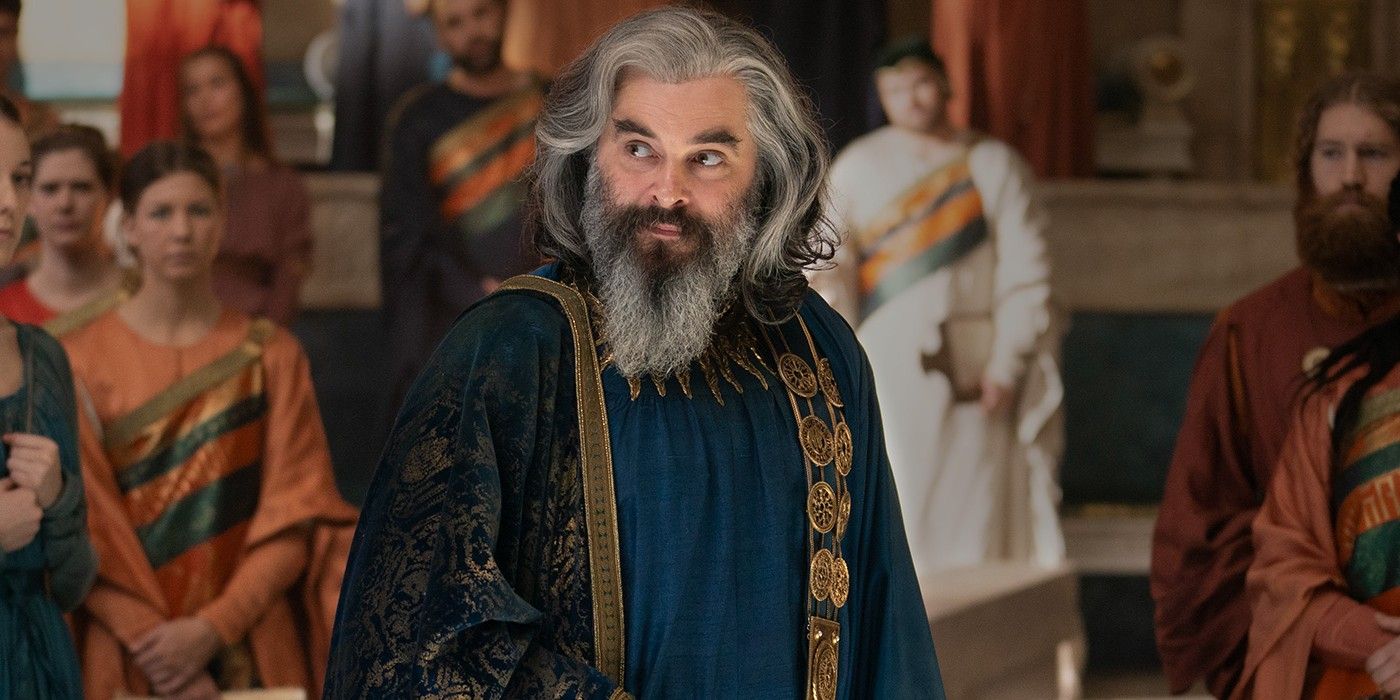The following contains spoilers for The Lord of the Rings: The Rings of Power Season 1, Episode 3, "Adar," now streaming on Prime Video.
From Sauron and Saruman to the Nazgul and Shelob, there were plenty of evil figures in The Lord of the Rings. Prime Video's The Rings of Power has promised to offer the same quality and quantity of villains over the course of its five seasons. However, they were pretty much non-existent in the first two episodes. Morgoth was gone and Sauron was in hiding except for appearances in the flawed introduction. That started to change in Season 1, Episode 3, "Adar."
The episode had three major plot threads. Nori and the Harfoots began their migration, but other than meeting the Meteor Man, nothing major happened there. The second plot thread was the introduction of the titular Adar, leader of the Orcs in the Southlands. The character -- who could be Sauron or a fallen Elf -- will be a major factor in Episode 4. The final plot thread followed the introduction of Elendil and the island of Númenor. That also added to the villain pool because the Númenóreans aren't good guys.
Early in "Adar," Galadriel awoke and found herself on a ship. Elendil -- who wouldn't give his name or answer any questions -- had rescued her and Halbrand, and he took them to the island of Númenor. Galadriel revealed there that much had changed since the early days of Númenor. They had become total isolationists, they no longer welcomed Elves and they despised the Valar.
That attitude was evident on a number of occasions in the episode. When Elendil presented Galadriel and Halbrand to Queen Regent Míriel, she made it clear that Elves were not allowed on her island. That prompted a verbal sparring match between the Galadriel and the Queen Regent that was only defused by Halbrand's charm. Shortly afterward, however, Halbrand had his own conflict with the Blacksmith's Guild. They also made it clear that they wanted nothing to do with Elves or any outsiders.
Yet Númenor's villainy goes much deeper than a lack of hospitality. The Valar created the island after the War of Wrath as a reward for the Men who fought against Morgoth. The Valar were revered, and there was a free exchange of goods and knowledge between the Númenóreans and the Elves. Over time, though, the Númenóreans' goodwill waned. A party called the King's Men appeared and they opposed the ways of Númenor. There was quite a bit of conflict between that faction and what became known as the Faithful. By the time of The Rings of Power, the King's Men were firmly in control with the Faithful mostly in hiding. The King's Men had even locked their Faithful king (probably Tar-Palantir) in a tower to shut him up.
In "Adar," viewers got to see important members of both parties. Elendil, along with his father Amandil and his son Anárion, was secretly a leader of the Faithful. Meanwhile, the Queen Regent's advisor Pharazôn was the leader of the King's Men. Eventually, Sauron will corrupt his mind on a quest for power and he will lead an army to Valinor. That action will bring about his death and the destruction of Númenor. Thus, while Sauron is obviously the bigger threat, Pharazôn and his Númenóreans will cause some big problems throughout The Rings of Power.
The Lord of the Rings: The Rings of Power streams Fridays on Prime Video.



